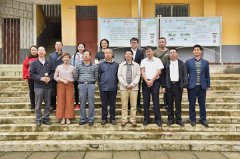攀枝花市大河中学高一英语周考试题
命题人 罗林英 审题人 唐燕
说明:本试卷分第一卷(选择题)和第二卷(非选择题)两部分。共150分。考试时间120分钟。第一卷 1至10页,第二卷11至12页。
本试卷分第一卷(选择题)和第二卷(非
第I卷(三部分,共100分)
第一部分 听力(共两节,满分30分)
第一节(共5小题;每题1.5分,满分7.5分)
听下面5段对话。每段对话后有一个小题,从题中所给的A、B、C三个选项中选出最佳选项,并标在试卷的相应位置。听完每段对话后,你都有10秒钟的时间来回答有关小题和阅读下一小题。每段对话仅读一遍。
1.What does the man like about the play?
A. The story. B. The ending. C. The actor.
2.Which place are the speakers trying to find?
A. A hotel. B. A bank. C. A restaurant.
3.At what time will the two speakers meet?
A. 5:20. B. 5:10. C.4:40.
4.What will the man do ?
A. Change the plan. B. Wait for a phone call. C. Sort things out.
5.What does the woman want to do ?
A. See a film with the man. B. Offer the man some help C. Listen to some great music.
第二节(共15小题:每小题1.5分,满分22.5分)
听第6段材料,回答6、7题。
6.Where is Ben?
A. In the kitchen. B. At school. C. In the park.
7.What will the children do in the afternoon?
A. Help set the table. B. Have a party. C. Do their homework.
听第7段材料,回答第8、9题
8. What are the two speakers talking about?
A. A family holiday. B. A business trip. C. A travel plan.
9. Where did Rachel go?
A. Spain. B. Italy. C. China.
听第8段材料,回答第10至12题。
10. How did the woman get to know about third-hand smoke?
A. From young smokers.
B. From a newspaper article.
C. From some smoking parents.
11. Why does the man say that he should keep away from babies?
A. He has just become a father.
B. He wears dirty clothes.
C. He is a smoker.
12. What does the woman suggest smoking parents should do ?
A. Stop smoking altogether.
B. Smoke only outside their houses.
C. Reduce dangerous matter in cigarettes.
听第9段材料,回答第13至16题。
13. Where does Michelle Ray come from?
A. A middle-sized city. B. A small town. C. A big city.
14. Which place would Michelle Ray take her visitors to for shopping?
A. The Zen Garden. B. The Highlands. C. The Red River area.
15. What does Michelle Ray do for complete quiet?
A. Go camping. B. Study in a library. C. Read at home.
16.What are the speakers talking about in general?
A. Late-night shopping. B. Asian food. C. Louisville.
听第10段材料,回答第17至20题。
17. Why do some people say they never have dreams according to Dr Garfield ?
A. They forget about their dreams.
B. They don’t want to tell the truth.
C. They have no bad experiences.
18. Why did Davis stop having dreams?
A. He got a serious heart attack.
B. He was too sad about his brother’s death.
C. He was frightened by a terrible dream.
19. What is Dr Garfield’s opinion about dreaming?
A. It is very useful.
B. It makes things worse.
C. It prevents the mind from working.
20.Why do some people turn off their dreams completely?
A. To sleep better.
B. To recover from illnesses.
C. To stay away from their problems.
第二部分 英语知识运用(共两节,满分45分)
第一节 单选填空(共15 小题,每小题1分,满分15分)
从A、B、C、D、四个选项中,选出可以填入空白处的最佳选项,并在答题卡上将该选项涂黑。
21. — We could invite John and Barbara to the Friday night party.
—Yes, ____? I’ll give them a call right now.
A. why not B. what for C. why D. what
22. In those days, he used to _________ his income to help his friend.
A. give out B. give away C. give up D. give off
23. Try she might, Sue couldn’t get the door open.
A. if B. when C. since D. as
24.
Climate here _________ from place to place. People can enjoy different scenery at different places. A. turns B. varies C. exchanges D. ranges




